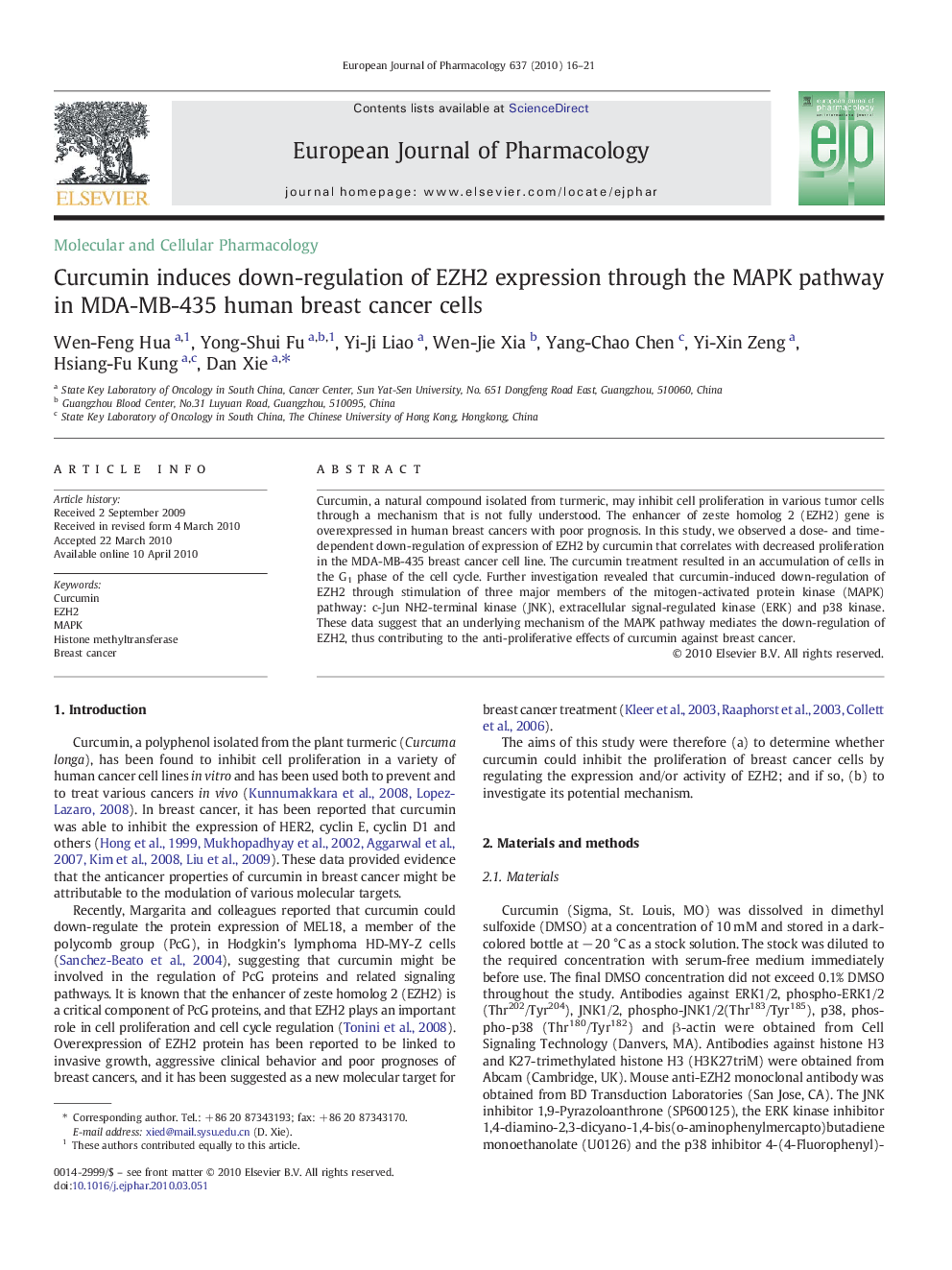| Article ID | Journal | Published Year | Pages | File Type |
|---|---|---|---|---|
| 2533469 | European Journal of Pharmacology | 2010 | 6 Pages |
Curcumin, a natural compound isolated from turmeric, may inhibit cell proliferation in various tumor cells through a mechanism that is not fully understood. The enhancer of zeste homolog 2 (EZH2) gene is overexpressed in human breast cancers with poor prognosis. In this study, we observed a dose- and time-dependent down-regulation of expression of EZH2 by curcumin that correlates with decreased proliferation in the MDA-MB-435 breast cancer cell line. The curcumin treatment resulted in an accumulation of cells in the G1 phase of the cell cycle. Further investigation revealed that curcumin-induced down-regulation of EZH2 through stimulation of three major members of the mitogen-activated protein kinase (MAPK) pathway: c-Jun NH2-terminal kinase (JNK), extracellular signal-regulated kinase (ERK) and p38 kinase. These data suggest that an underlying mechanism of the MAPK pathway mediates the down-regulation of EZH2, thus contributing to the anti-proliferative effects of curcumin against breast cancer.
